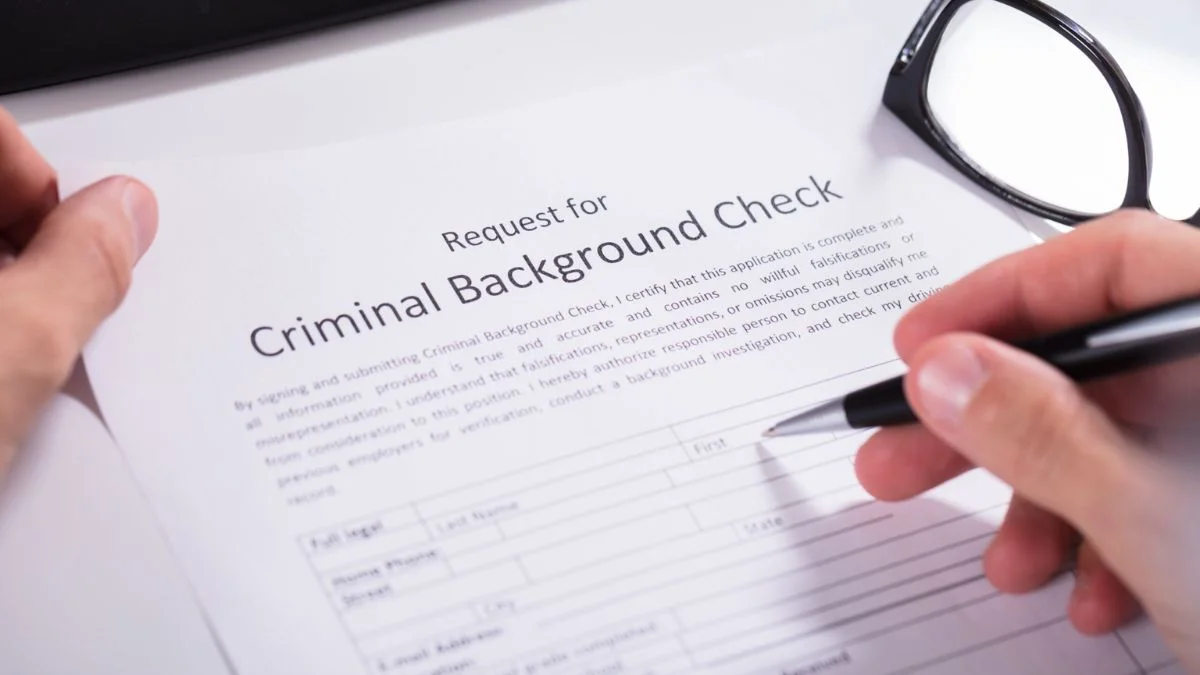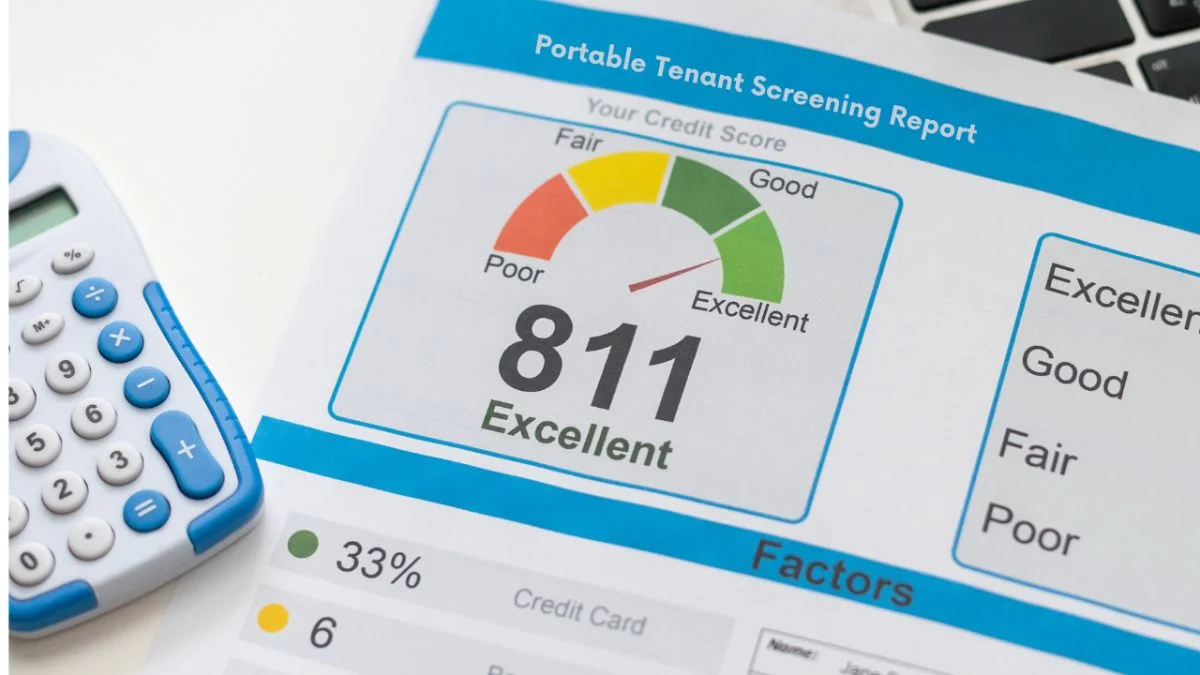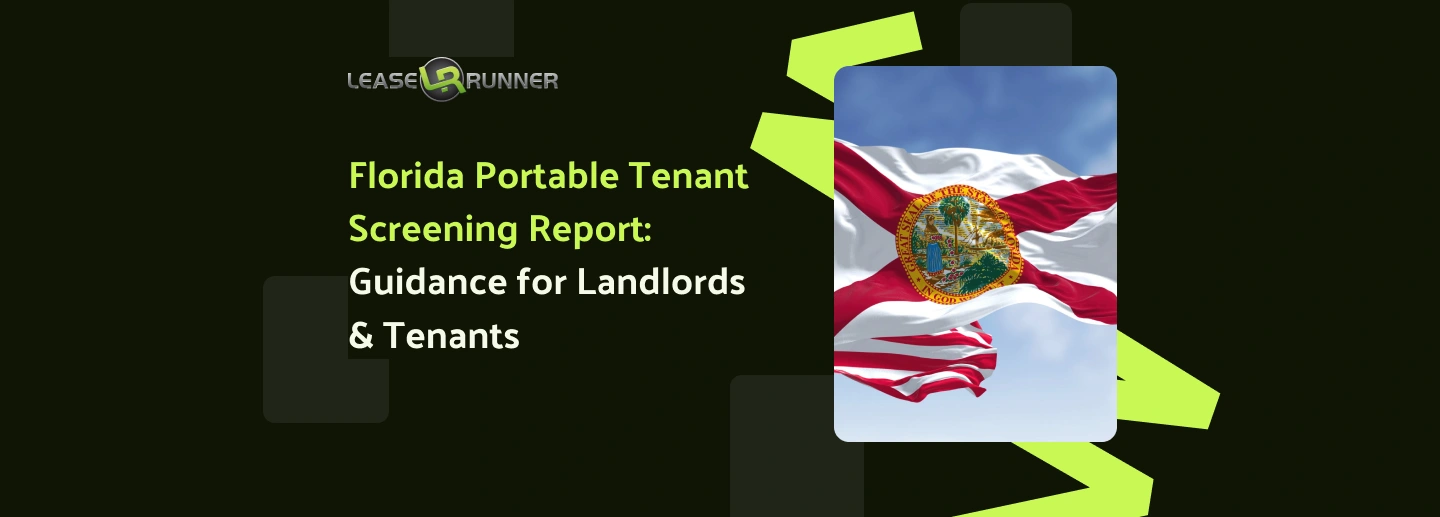A Portable Tenant Screening Reports (PTSR) in Rhode Island allows renters to pay once and reuse the report for multiple landlords, reducing the cost of repeated background checks. Rhode Island, along with five other states, prohibits landlords from charging application fees if tenants provide a portable report. This concept is also gaining federal attention, with 15 state attorneys general recommending PTSRs to the FTC in 2023 to lower rental fees. This guide will cover the laws, benefits, and reliable platforms like LeaseRunner for accessing PTSRs, helping renters stay informed and compliant.
What Information Is Included in a Rhode Island PTSR?

A Rhode island portable tenant screening report, or PTSR, is a background report created by a screening company that tenants can reuse for multiple rental applications. So, what shows up on a tenant screening report of this nature? Here's a Rhode Island portable tenant screening report detailed breakdown:
- Cashflow report: Shows the tenant's financial situation. Includes income details, recent deposits, and overall cash trends. Helps landlords understand whether the tenant can pay rent consistently.
- Criminal report: Lists any past criminal records from state and national databases. Landlords use this information to assess potential risks to the property and other residents.
- Eviction report: Covers previous evictions, including case dates and outcomes. Provides insight into rental history and highlights any issues with non-payment or lease violations.
- Rental report: Contains personal information, contact details, address history, employment information, and consent for background checks. Gives landlords all the data needed to process the application efficiently.
For example, imagine a tenant named Rosie who recently received a job transfer and needs to move to Providence quickly. She has several potential rental options but cannot afford to pay separate screening fees for each application. By using a Rhode Island Portable Tenant Screening Report (PTSR), Rosie can submit the same comprehensive report to multiple landlords. This allows her to speed up the rental process, avoid repetitive fees, and demonstrate her reliability to landlords without delays. In urgent situations like this, a PTSR makes moving smoother and less stressful.
Rhode Island Laws on Portable Tenant Screening Reports

Portable tenant screening reports are becoming more common in U.S. housing markets. Some states have passed specific rules requiring landlords to accept them, while others leave it up to landlord discretion.
So where does Rhode Island fall?
Tenants Rights of Using PTSR in Rhode Island
Rhode Island tenants have the right to use portable tenant screening reports (PTSR) when applying for rental housing. Unlike many other states that limit the validity of such reports to 30 days, Rhode Island allows reports up to 90 days old. This extended period gives tenants more flexibility to apply to multiple properties without paying repeated screening fees.
According to R.I. Gen. Laws § 34-18-59, if a prospective tenant submits a criminal background check or credit report dated within the last 90 days, the landlord must accept it and cannot charge a fee for processing a new report. Using a PTSR can help tenants save money by avoiding multiple screening fees and speed up the rental process, especially when applying to several properties at once.
It is important to note, however, that Rhode Island law does not require landlords to accept every portable report. Landlords retain the right to run their own screening checks if they prefer. Tenants should understand that while a PTSR is legally valid and reusable, acceptance depends on each landlord’s policy. Being prepared with a PTSR can still give tenants an advantage by demonstrating transparency and readiness, particularly in competitive rental markets.
Landlord Responsibilities for Accepting PTSRs in Rhode Island
When landlords consider accepting a Portable Tenant Screening Report (PTSR), several responsibilities ensure legal compliance and fair treatment of applicants. Rhode Island law and the Fair Credit Reporting Act (FCRA) set clear guidelines to protect tenants’ rights while allowing landlords to evaluate rental applications efficiently.
1. Comply with Fair Housing Laws
Landlords must follow the Rhode Island Fair Housing Practices Act (§34-37-4). Information from a PTSR cannot be used to discriminate against applicants based on race, religion, sex, familial status, or national origin. Every applicant should be evaluated consistently and fairly.
2. Verify the Validity of the PTSR
Before relying on a PTSR, landlords should confirm that the report:
- Is recent, ideally issued within the last 90 days.
- Covers all key areas, including credit history, criminal background, and eviction records.
- Comes from a reputable screening company that complies with federal FCRA rules.
This ensures that decisions are based on accurate and comprehensive information.
3. No Extra Fees for Portable Reports
If a landlord accepts a tenant’s PTSR, charging additional fees related to the report or the application fees is prohibited. Tenants should not pay more than the cost already covered by obtaining the portable report.
4. Limits on Landlord-Pulled Reports
Landlords who choose to obtain their own screening report may charge the tenant only the actual cost of the report, without any added administrative fees. Transparency is key in maintaining trust and fairness.
5. Provide Copies and Rights Information
When a landlord pulls a screening report, a copy must be provided to the tenant. Landlords should also inform tenants of their right to dispute any inaccuracies. This supports tenant awareness and ensures compliance with FCRA requirements.
6. Adverse Action Notices
If a landlord denies a rental application based on information in a PTSR or any screening report, an adverse action notice must be issued under FCRA and Rhode Island General Laws §6-13.1. This ensures transparency and fair treatment, whether you rely on a portable report or your own online rental contract and application process. For example, if you reject a tenant based on information in the report, you are required to provide an adverse action notice.
Why Using Portable Tenant Screening Reports in Rhode Island?
The shift towards comprehensive reusable tenant screening reports isn’t just about convenience; it’s about efficiency and trust. When both parties understand the benefits, the rental process becomes smoother and faster for everyone involved.
Let’s look at the advantages for both sides.
Advantages of Using PTSRs as Tenants
For a tenant, the benefits of a reusable tenant screening report are significant and direct.
- Save Time and Money: Instead of paying multiple application fees, which can add up quickly, a tenant pays for one report. This single report can be used for as many properties as they need, saving hundreds of dollars.
- Streamline the Application Process: With a PTSR, you have a key document ready to go. This makes the Rhode island rental application process much quicker and less stressful.
- Control Your Data: By obtaining your own report, you have full control over your personal information. You can review the report for accuracy before sharing it. If there’s an error on your credit report, for example, you can get it fixed before any landlord sees it, ensuring you’re presenting the best possible picture of yourself.
Advantages of Accepting PTSRs as Landlords
While landlords aren’t required to accept them, there are clear benefits to doing so.
- Faster Tenant Placement: When an applicant provides a PTSR, a landlord can review it immediately. This speeds up the screening process dramatically.
- Access to High-Quality Applicants: Tenants who have a PTSR are often more organized and serious about their rental search. Accepting these reports can attract a pool of motivated, financially responsible applicants.
- Reduced Administrative Burden: Running individual background checks on Rhode island for every applicant can be a lot of work. By accepting a PTSR, the landlord simply needs to review the provided report, which is much faster and more efficient.
- Cost Savings: While the tenant pays for the report, the landlord saves on their own screening fees. This can add up, especially for a landlord with multiple properties or a high turnover rate.
For both parties, portable reports can create a smoother leasing process—when used properly.
Ways To Get PTSRs in Rhode Island For Tenants

If you’re a tenant looking for a Rhode Island portable tenant screening report, here’s how to get started.
Choose a Screening Service
Not all screening services are created equal. It’s important to select a reputable company that provides a comprehensive, reusable tenant screening report. Look for services that comply with the Fair Credit Reporting Act (FCRA), which ensures both accuracy and legal validity. That’s exactly why LeaseRunner was built - to make tenant screening smarter, faster, safer, and fully compliant with the law.
With LeaseRunner, getting a Portable Tenant Screening Report (PTSR) in Rhode Island is more than just a background check. Our full-service background reports cover credit history, criminal records, eviction history, and income verification—key information landlords need to make informed decisions. LeaseRunner handles everything securely and professionally:
- Verifying criminal and eviction records through trusted databases
- Confirming income and employment directly with employers
- Checking credit history and financial stability
Everything is handled securely and professionally. By choosing LeaseRunner, landlords can streamline the rental application process, save on application fees, and ensure compliance with legal standards.
Sign Up and Provide Information
Once you have chosen a service, you will need to create an account and provide your personal information. This will include your name, date of birth, social security number (SSN) , and previous addresses. The service needs this information to correctly pull your credit, criminal, and eviction history.
Understand PTSRs Validity in Rhode Island
In most cases, a PTSR is valid for 30 days from the date it is issued. After that, landlords may request a new version. Always check with your chosen provider and confirm Rhode Island rental application requirements.
Share Report with Landlords
Once your report is ready, tenants can share it with potential landlords. Most online services have a built-in sharing function that allows you to send a secure link to a landlord's email address. This keeps your personal data safe and ensures the landlord gets an official, tamper-proof report.
Keep Information Updated
If your report expires or your information changes (e.g., you get a new job or pay off a large debt), you will need to get a new report. It’s always best to provide the most current information possible before submitting it to new landlords.
How to Verify the Legitimacy of a Portable Tenant Screening Report? (For landlord)

Landlords sometimes worry about whether a PTSR is genuine or complete. To avoid common pitfalls, it helps to be aware of tenant screening mistakes landlords often make.
Use Validation Tools
Most reputable tenant screening services provide a validation tool to ensure the report is authentic. A landlord can enter a unique report ID or a link provided by the tenant into platforms like LeaseRunner, TurboTenant, or other trusted screening services. This process verifies that the report is official, accurate, and hasn’t been tampered with. This is the first and most crucial step in the verification process.
Examine the Report Thoroughly
When reviewing a tenant screening report, landlords should check the following:
- Professional formatting: Ensure the report has a consistent, clear layout with a professional logo and a summary section.
- Legible details: Look for readable text, accurate tenant information, and no blurry images.
- Signs of alteration: Be alert for inconsistencies, missing sections, or evidence of digital tampering.
- Report date: Confirm the report was generated recently - no older than 90 days in Rhode Island to comply with local laws.
Verify Information Independently
While a PTSR provides comprehensive tenant data, landlords should always verify key details through independent sources, not just by cross-referencing the rental application. Steps include:
- Compare with the Rental Application: Check that the tenant’s name, date of birth, and previous addresses match what’s listed on the Rhode Island rental application.
- Contact External Sources: Reach out to employers, previous landlords, or consult public records to confirm employment history, rental history, and other critical details.
- Look for Red Flags: If inconsistencies appear such as mismatched dates of birth, unexplained gaps in addresses, or conflicting employment information, these may indicate issues that require further investigation.
By independently verifying information, landlords can reduce risk and ensure the tenant’s background is accurately represented.
Check the Report's Source and Compliance
Ensure the report comes from a reputable, FCRA-compliant service. A good report will state which credit bureau was used (like TransUnion, Equifax, or Experian) and what public records were searched. This gives you confidence that the data is accurate and legally obtained.
Look for Tenant Affirmation of No Changes
A key feature of a legitimate reusable tenant screening report is an attestation from the tenant stating that there have been no material changes to their information since the report was generated. These material changes may include:
- Change or loss of employment
- Moving to a new address
- New lawsuits, legal records, or judgments
- New debts or bankruptcy filings
This is a legally important statement that shows the tenant is being honest and transparent.
Conduct Additional Screening Measures
Even if you accept a PTSR, you can still perform your own due diligence. A quick call to verify employment, check with previous landlords, or ask about pet history can reveal details not covered in the report. This small step adds extra protection and confidence in your tenant selection.
Stay Compliant with Local Laws
As a landlord, you must ensure that your screening and acceptance process complies with all local and state laws including the Fair Credit Reporting Act (FCRA) and Rhode Island tenant screening laws.
You must: using the information fairly, handling sensitive data securely, and providing the tenant with a copy of the report if you deny their application based on information found within it.
When to Accept vs. Reject a PTSR in Rhode Island

Deciding whether to accept or reject a rhode island portable tenant screening report is a key decision for landlords. While they offer many benefits, there are also times when it might be in your best interest to run your own background checks rhode island.
Situations Where Accepting Makes Sense
- The report is recent (within 90 days): Rhode Island allows a PTSR to be valid for up to 90 days, which is longer than the typical 30-day limit in other states. Landlords can accept a report within this period.
- Tenant Provided: If the tenant provides a valid PTSR within the 90-day period, landlords must accept it and cannot charge the tenant an application fees for screening.
- Trusted Source: The report comes from a trusted, FCRA-compliant provider.
- Comprehensive Checks: It includes all essential checks, such as credit history, eviction records, criminal background, and rental history.
- Tenant Confirmation: The tenant affirms that no changes have occurred in their situation since the report was issued.
Red Flags That Justify Rejection
- The report is outdated: If the PTSR exceeds Rhode Island’s 90-day validity period, it should not be accepted.
- Missing categories: Essential checks such as eviction records, credit history, or criminal background are incomplete or absent.
- Non-compliant provider: The report comes from a company that does not meet FCRA or state compliance standards.
- Tenant refuses verification: The tenant declines to confirm the report’s accuracy or provide additional documentation.
- Suspicion of fraud or tampering: If the report appears altered, inconsistent, or originates from an unverified source, landlords are justified in rejecting it.
If these issues arise, landlords are within their rights to request a new report through their preferred service.
Conclusion
In Rhode Island, portable tenant screening reports (PTSRs) are becoming an essential tool in the rental market. They help tenants save money and simplify the application process, while allowing landlords to make faster and more informed leasing decisions.
To use PTSRs effectively and responsibly, tenants should choose a reputable provider and keep their reports up to date, while landlords must ensure compliance with state and FCRA regulations before accepting a report.
For more tips and detailed guidance on using portable tenant screening reports effectively, landlords and tenants can visit the LeaseRunner blog. You’ll find advice to help streamline the rental process and make informed decisions.
FAQs
Where to Get a Portable Tenant Screening Report?
You can get a reusable tenant screening report from a number of online services that specialize in tenant screening. Reputable options include LeaseRunner, which provides comprehensive reusable tenant screening reports that are FCRA-compliant. These services typically allow tenants to purchase the report and then share it securely with multiple landlords.
Can Landlords Still Run Their Own Screening?
Yes. A landlord in Rhode Island is not required to accept a portable tenant screening report. They have the right to decline the report and run their own background checks in rhode island and require the tenant to go through their standard rhode island rental application process.
What are the key differences in PTSR validity rules between Rhode Island and other states?
Rhode Island allows a portable tenant screening report (PTSR) to be valid for up to 90 days, giving tenants more flexibility. In contrast, most other states limit PTSRs to a shorter period, usually 30 days, such as:
- Illinois: 30-day validity
- California: 30-day validity
- Texas: 30-day validity
How can tenants ensure their PTSRs are accepted by Rhode Island landlords?
Tenants can ensure their PTSRs are accepted by Rhode Island landlords by:
- Using a reputable, FCRA-compliant provider.
- Making sure the report is no older than 90 days.
- Confirming that the report includes all essential checks (credit, eviction, criminal, and rental history).
Being ready to affirm that no changes have occurred since the report was issued.







